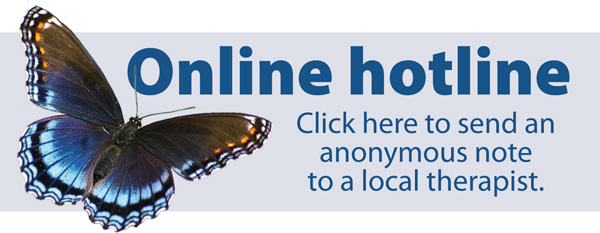I had been in what you’d call an abusive relationship for 5 years.
The first altercation occurred only 2 months into the relationship where I ignored it and convinced myself it was a one off situation. I said something that had annoyed him and he pushed me into a chair. I was surprised but couldn’t admit to myself this was a red flag.
Eventually over time, whenever we’d argue, I’d be very persistent and not leave him alone, even at his request. So as a result he’d shove me into walls, staircases and dragged me across the floor. Because he didn’t punch me I didn’t look like those poster women with black eyes so we’d never considered it abusive.
I’ve finally got out of the relationship but to this day I can’t get over the guilt. And I believe I turned him into a monster because he was initially nice. But after meeting me, he turned this way. He’d also make it clear that I caused him to behave that way.
According to your professional opinion, can you please give me some answers as to whether you believe my annoying and irritating words caused his awful behavior.
If so I can finally get the confirmation I need and get help to correct my behavior.
Response by Brandy Scholl MS, LAC of Ozark Guidance
First, thank you for being brave and vulnerable in reaching out to us with your situation. It takes a lot of courage to speak out and about abuse.
The complicated dynamics and emotions that come with Intimate Partner Violence (IPV) can make it especially difficult and I believe unique. Over the last 7 years working with IPV victims, 5 of those years in a Domestic Violence Shelter, I have learned from each person how unique IPV trauma is and yet how each person’s story and trauma reactions are very different.
One thing that is very common is the false responsibility, guilt and shame over what has happened.
Non-physical IPV is just as damaging as physical IPV. There is a myth that you can always recognize victims of IPV by their physical appearance. That is not true. IPV can have many looks and is not bias across the board – we ALL have the “look” because it could be anyone at all you passed beside that is laughing and smiling or playing with their kids.
Many victims of IPV learn early how to hide the fact they are involved with IPV. There could be many reasons why to hide the truth of being a victim of IPV. Some victims of IPV will make excuses for bruises on their bodies by stating they are clumsy or literally make up a story that could be considered credible. Others, who may not have bruises, will hide their emotional struggle by acting happy, content with life or project the “perfect” family life. One of the biggest reasons is that a victim of IPV does not think anyone would believe them. Which brings to mind the term called “Gaslighting.”
There is an article on the website for Psychology Today that describes the “11 Warning Signs of Gaslighting.” The article defines Gaslighting as a tactic in which a person or entity, in order to gain more power, makes a victim question their reality.
The very doubt you have had about your own part of the abuse can be wrapped up in this term and the warning signs:
- They tell blatant lies.
- They deny they ever said something, even though you have proof.
- They use what is near and dear to you as ammunition.
 They wear you down overtime.
They wear you down overtime.- Their actions do not match their words.
- They throw in positive reinforcement to confuse you.
- They know confusion weakens people.
- They project. One example could be an abuser accusing their victim of cheating on them when the abuser is the one cheating.
- They try to align people against you
- They tell you or others that you are crazy.
- They tell you everyone else is a liar.
When someone is in an abusive relationship the abuser will use tactics to make that victim feel like they are emotionally unstable and the one with the issues. The abuser will tell the victim they are unstable, convince the victim they are the one who is unstable with issues and try to convince family, co-workers and friends of the same. Over time this can cause such psychological warfare to someone’s emotions and mental health that it becomes deeply set in thought patterns and processes. Overtime a victim will believe they are not credible in anyone’s eyes and therefore will not speak out for fear of not being believed and/or rejection.
To answer your question concerning, “did I turn my abuser into an abuser?” The simple answer is, No… when someone makes the choice to abuse another it is about them, not about the victim. It is about the abuser’s need for control over another person.
This does not excuse the responsibility we each get to own in conflict that happens with others and the unhealthy ways we all can react and behave. It does not matter how much one pushes another’s buttons; there is never an excuse to be abusive to anyone. Again, this is about the abuser and their own very unhealthy emotional state. When an abuser says it is their victim’s fault they are Gaslighting their victim. They need to deflect the issues off of them and make you the problem.
These abusive patterns were already set within them, typically at an early age caused by their own experiences of childhood abuse or bullying of some sort. Sometimes the bullied becomes the bully. Until that person is willing to admit and own their issues there is not a lot that can be done to change how they are.
I am not a person to say there is nothing they can do to change without some outside counseling or help but there is very little that can be changed within someone who is abusive till they are ready. Neither you, nor anyone else, can change them. They have to change themselves and want that. I will stress this over and over… you cannot change someone who is not willing to change or is unaware of why they should.
In ending, please consider getting into some form of counseling or group support. One thing I do and will tell my clients who suffer or have suffered from IPV is to “take care of your own issues before you get into another relationship.” “Learn the red flags and how to have very solid boundaries.” I will tell my clients to “date” you for a year. Do not bring a love interest in your life or even look for one for a whole year to focus on who you are as a person.
I can with almost 100% confidence tell you if you do these things for yourself you will not find yourself in another IPV relationship. I am a big supporter of self-awareness and self-responsibility with choices. One of my own sayings is this “awareness breeds responsibility.” It gives you back your power over your life and direction. Educate yourself and get in a place of emotional health to feel confident in yourself to set boundaries, see the red flags and make decisions accordingly.
If you are in a relationship that you are not sure of please contact the National Domestic Violence phone number at 1-800-799-7233 or go to their website at www.hotline.org. The website has safety features in case you have to exit quickly. One myth I would like to make sure to address is that you have to commit to something if you call this number. You do NOT.
There are highly trained people on the other end that has worked with hundreds and even thousands of victims and will not judge or reject you. They will help you find the nearest shelter if you need or just be a place you can process what is going on or to safety plan. There are cases where it is too dangerous to leave your home right away no matter how bad it is. Be sure to safety plan, think of your safety and those you are responsible for first. There is always a way out when you are ready for that way.
There are Domestic Violence Shelters all over the United States. Many of those shelters, including the ones in Northwest Arkansas, offer outreach services. This means that you do not have to be in shelter to receive their services. You can go to the amazing domestic violence groups they offer and have an advocate that will be there for you and your particular needs. They do not pressure, you do not have to commit to anything you are not ready to do.
If you are interested in one-on-one counseling please contact Ozark Guidance at 479-750-2020 to find out what the steps are to get counseling.
Therapists at Ozark Guidance would be happy to answer your questions and read what’s on your mind. Click here to read more questions and answers in the On Your Mind category. Click the butterfly icon below to fill out an anonymous submission form with your question or concern. The form contains NO identifying information and is designed to give local women an online place to share concerns with a person qualified to offer feedback.
 Disclaimer: This RESPONSE does not provide medical advice It is intended for informational purposes only. It is not a substitute for professional medical advice, diagnosis or treatment. Never ignore professional medical advice in seeking treatment because of something you have read on nwaMotherlode or Ozark Guidance websites.
Disclaimer: This RESPONSE does not provide medical advice It is intended for informational purposes only. It is not a substitute for professional medical advice, diagnosis or treatment. Never ignore professional medical advice in seeking treatment because of something you have read on nwaMotherlode or Ozark Guidance websites.

